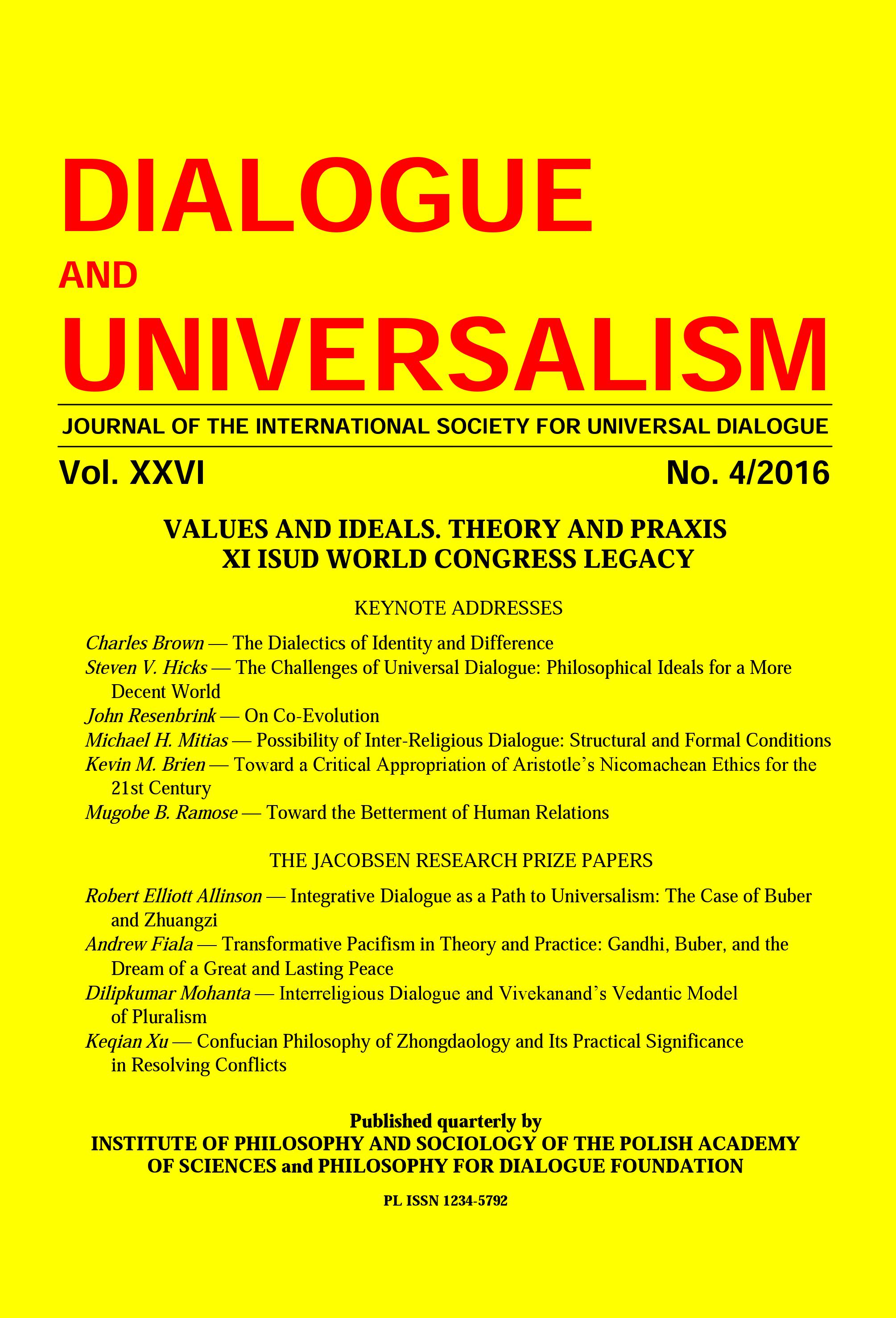INTERRELIGIOUS DIALOGUE AND VIVEKANAND’S VEDANTIC MODEL OF PLURALISM
INTERRELIGIOUS DIALOGUE AND VIVEKANAND’S VEDANTIC MODEL OF PLURALISM
Author(s): Dilipkumar MohantaSubject(s): Philosophy, History of Philosophy, Philosophical Traditions
Published by: Instytut Filozofii i Socjologii Polskiej Akademii Nauk
Keywords: one among many; tolerance; acceptance; interreligious dialogue; religious pluralism
Summary/Abstract: What are the preconditions of interreligious dialogue? How do philosophical reflec-tions help today a religiously plural society to live in harmony, peace and sustainable development? In this paper I deal with these questions in the light of Swami Viveka-nanda’s concept of Universal Religion and try to search for a philosophical model of interreligious dialogue. Vivekananda propounds that we are to go beyond tolerance, and accept other religions as good as our own. Vivekananda’s interpretation has also the implication of transcending various commonly known worldviews in the context of religion and culture. It strengthens the application of the principle of “live and let live.” This model of understanding does not regard the existence of other religions as a hin-drance to worldly progress and peace. This attitude is rather guided by a practical plan which does not allow for questioning the encountering of religion. It does not destroy the individuality of any man in religion and at the same time shows him a point of union with all others. Our analysis will develop the significance and relevance of this view.
Journal: Dialogue and Universalism
- Issue Year: 2016
- Issue No: 4
- Page Range: 149-161
- Page Count: 13
- Language: English
- Content File-PDF

